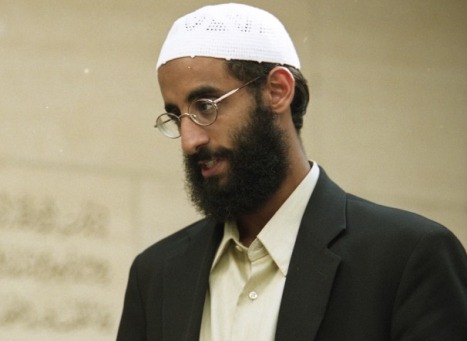
Lawyers for a Muslim scholar convicted in 2005 of soliciting treason on Friday pressed a judge to order prosecutors to disclose information they believe could show that American-born al-Qaida leader Anwar al-Awlaki was once a government informant.
Ali Al-Timimi of Fairfax was the spiritual leader for a group of northern Virginia Muslims who played paintball to train for holy war. He was convicted and sentenced to life in prison for exhorting some of them to join the Taliban and fight against the U.S. after the Sept. 11 attacks. Several of them got as far as Pakistan, training with a militant group called Lashkar-e-Taiba.
Al-Timimi’s lawyers said Friday at a hearing in U.S. District Court in Alexandria that they are suspicious about a 2002 visit al-Awlaki paid to al-Timimi. The defense now suspects al-Awlaki, who has since been killed, went there as an informant to get incriminating information on al-Timimi. If so, they say al-Awlaki’s role as an informant should have been disclosed at trial.
At the meeting, al-Awlaki purportedly tried to get al-Timimi’s help in recruiting men for jihad, but al-Timimi rejected him. Al-Timimi’s lawyer, Jonathan Turley, said government documentation of the meeting would refute the case made at trial by prosecutors that al-Timimi was urging Muslims to fight. They also say it would show that al-Timimi had been in the government’s crosshairs back in 2002, which would have contradicted other testimony that the government did not begin investigating al-Timimi until 2003.
The suspicions about al-Awlaki stem from newly discovered information that FBI agents involved in Al-Timimi’s case may have facilitated al-Awlaki’s return to the United States in 2002. Al-Awlaki had been imam of a northern Virginia mosque at the time of the 2001 attacks but left the U.S. shortly thereafter.
He had contact with some of the Sept. 11 hijackers, and in years after the 2001 attacks emerged as a top al-Qaida leader before being killed in a drone strike in 2011. There has been debate as to whether al-Awlaki hid long-held al-Qaida sympathies in his time in the U.S. or radicalized after leaving the years after Sept. 11.
Also released earlier this year were FBI documents showing that agents observed al-Awlaki in 2001 and 2002 hiring prostitutes, but never brought charges against him.
Prosecutors say they’ve turned over everything required of them. In court papers and at Friday’s hearing, they gave no information on whether al-Awlaki may have been an informant. Instead, they say they are only obligated to turn over information that would assist the defense, and said the law gives prosecutors the discretion to make that determination.
The law “does not entitle any defendant to the disclosure of the extent and nature of the government’s investigative tools or tactics simply because he suspects that materials are in the government’s possession that might prove interesting to him,” prosecutor Gordon Kromberg wrote.
U.S. District Judge Leonie Brinkema said she will issue a written ruling later on the motion, but expressed doubt about the defense requests. She said she was persuaded in part because of secret evidence the government submitted in the case, which even Turley, who holds a security clearance, has not been allowed to see.
Al-Timimi attended Friday’s hearing but did not speak, wearing a jail jumpsuit and sporting long hair and a beard significantly grayer than at his 2005 trial.









Comments powered by CComment